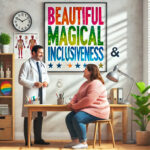How Crises Can Re-Ignite Eating Disorder Thoughts

How Crises Can Re-Ignite Eating Disorder Thoughts
Audry – the patient
My eating disorder (ED) is like a quiet hum in the background. For the past few years, the ED thoughts still trickle through my consciousness, but I have been able to acknowledge them and then push them out of my head enough to keep them from consuming my day-to-day life. But during times when I am struggling with other things like an illness or a stressful situation, that hum gets loud. It can happen so subtly that it takes some time to notice, and once I do, I am frustrated with myself for letting it back in. It seems able to crawl through the cracks in my routine and take advantage of an external situation that lowers my self-esteem. The isolation and disruption of my routine caused by the COVID-19 pandemic has opened the door wider for my ED to creep back in.
Before the pandemic hit, I was experiencing unrelated health issues that kept me from running for several months. Not being able to run was a struggle because running helped me feel good about my body, it helped give me a purpose to fuel my body. Running was a great stress reliever, and it was a way to connect with a community that I enjoy. Temporarily losing my ability to run caused my ED voices about eating less to get louder. I tried to combat this by getting out and doing other activities that helped me feel connected and purposeful. Then social distancing and quarantine orders went into effect and left me trapped at home in a full house with high tensions. I turned to running to help me get out of the house and deal with the stress, but I was not ready yet and sustained an injury.
At the same time as all of this, I also had to leave my job in emergency medicine because of an unhealthy work environment. With, seemingly, everything hitting at once and all my options drying up, the ED got even louder. I found myself counting calories because I was scared of eating too much when I was exercising less. I began to feel anxious about eating at family dinners, and I started to obsess over my body in the mirror multiple times a day.
What scares me the most is how my eating disorder slowly crept back in little by little for months without me really noticing. I told myself I wasn’t really restricting my food intake, so I was fine. However, I wasn’t acknowledging how the thoughts turned from passing annoyances to more consuming entities that negatively impacted how I felt about myself and interacted with others. When I fully consciously noticed what was happening, I felt like a failure. I felt like my whole recovery had been a lie and feared this meant I was entering a complete relapse.
I reached out to Dr Richard Kreipe to talk, and he explained that this is a difficult time and I am struggling a bit more. However, I should be proud that I was able to recognize it and reach out, and that this does not mean that I have relapsed.
During this difficult time, I am trying to be vigilant of how my eating disorder can take advantage of the situation and creep back in at levels I am not okay with. At the same time, I am trying to be patient with myself and realize that the fact that I am asking for help and trying to combat my eating disorder shows how far I have come.
ED thoughts do not have to equal ED actions. In the past few weeks, I have started a new emergency medical technician job, and going out and helping people during this time is giving me a sense of purpose. This sense of purpose is helping me in my fight against the negative ED thoughts. I am also keeping in close contact with my primary care provider for support, and I am being open and honest with my loved ones.
I am telling myself that recovery is not perfection, and even the current situation is difficult, finding a way through will make me stronger.
Dr Kreipe – the eating disorder specialist
Audry offers an important lesson about thinking patterns and eating disorders. Thinking patterns were central to her ED as a teenager. The patterns were brought under control and largely submerged during her successful four years in college, only to re-emerge during the COVID-19 pandemic, The process of recovery requires affected individuals to recognize thoughts that lead to ED behaviors and replace them with alternative thoughts that result in alternative, non-ED behaviors.
Cognitive Behavioral Therapy (CBT), created back in the 1960s and central to the evidence-based treatment of EDs for the last 30 years, is based on this principle. There is no doubt that patients with restrictive anorexia nervosa can replace ED thoughts and behaviors with a healthy mind-body transformation leading to a healthy, fulfilling, and long life.
However, my 40-plus years working with many patients has taught me that recovery can be thrown off track when one’s life meets with upheaval — such as this unprecedented time — triggering ED thoughts to resurface. What I have learnt from them mirrors Audry’s comments. She describes her ED as a “quiet hum in the background,” acknowledging that these thoughts sometimes “trickle through” her consciousness. In retrospect, she realized that her ED “slowly crept back” into her life without her “really noticing” it. This is similar to what other patients have told me when faced with ED thoughts and behaviors resurfacing, after having been absent for some time, when faced with overwhelming challenges.
And, as is often true of affected individuals being their own worst critic, when Audry realized what was happening, she “felt like a failure,” and assumed that she was “entering a complete relapse.” But, before letting those thoughts define her, she reached out… We talked about what she was experiencing as a common occurrence. Also, the fact that she recognized what was happening meant that she was already on the road to reclaim her life, rather than submit to the “ED thoughts.”
Audry now has a “sense of purpose”; she is keeping in contact wither her primary care provider; and is being “open and honest” with her loved ones. Most importantly, she is not seeking perfection, but realizes that “finding a way” will make her stronger in forging a more resilient and long-lasting recovery.
Audry’s experience in successfully preventing a relapse of her ED due to disruption in all aspects of her life is based on mindfulness. Simply, mindfulness is grounded on the principle that: Thoughts Are NOT FACTS. I would like to acknowledge two young academics who have written a doctoral and master’s degree dissertation, respectively, related to mindfulness in recovery from eating disorders. Julie Dunne, PhD, RN, PMHNP-BCRN earned her doctoral nursing degree and published Mindfulness in Anorexia Nervosa: An Integrated Review of the Literature in 2018. Amy O’Sullivan earned her Master’s Degree in Applied Positive Psychology (MAPP) with her thesis titled Reviving Recovery: A Supplemental Approach in Treating Eating Disorders in 2019, with an emphasis on thinking patterns in recovery.
I hope that what Audry and I have written gives hope to others who may have experienced a resurfacing or amplification of ED thinking patterns during the pandemic. For a short time, she thought that her “whole recovery had been a lie.” But in reconnecting and staying connected with people she knew and trusted, and in being open and honest — with herself and others —she is stronger than ever in living her life without an ED.
| About Audry | |
|---|---|
 |
I am an undergraduate student at the University of Rochester, Rochester New York, and I am studying biology and philosophy. I also work part time as an emergency medical technician, serving the town of Ontario, NY. After completing my undergraduate work, I plan to obtain a higher degree in medicine, pursuing a career in both clinical practice and research. In my free time, I love being outdoors, playing with my dogs, and spending time with my family and my boyfriend. |
| About Dr Kreipe | |
|---|---|
 |
Rich Kreipe is a Professor Emeritus at Golisano Children’s Hospital at the University of Rochester. His 40+ year career as an academic clinician teacher of paediatrics and adolescent medicine was grounded in the biopsychcosocial approach using a developmental framework to understand the transition from child-to-adult (identity) and from childhood-to-adulthood (autonomy, informed by the principles of human ecology. |





